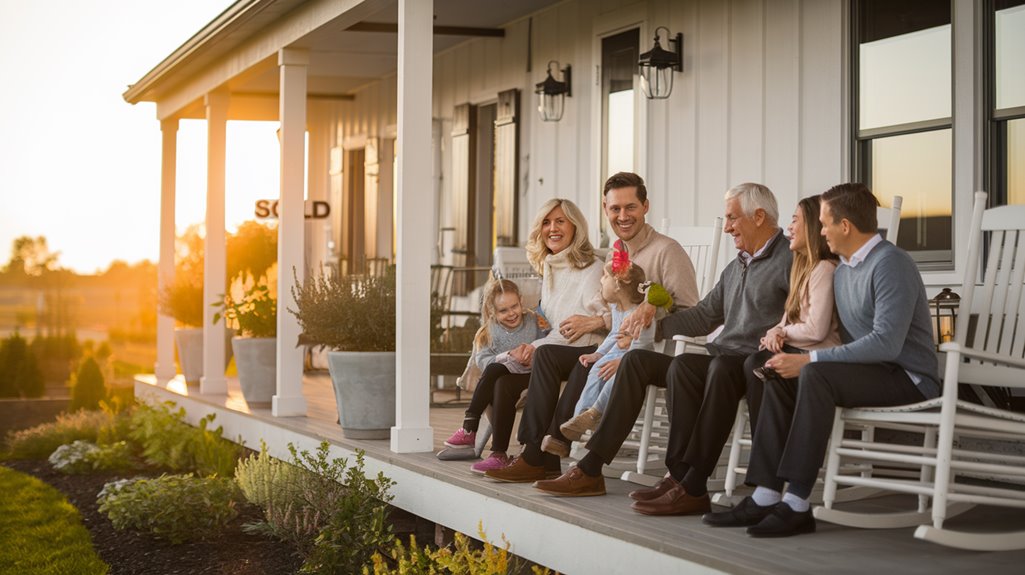Buying a home and staying there for many years can help you and your family grow money over time. Each time you pay your monthly bill, you own more of your home. Unlike rent, your house payments won't go up if you get a fixed rate loan. You can save money on taxes when you own a home. Best of all, you can paint the walls any color you want and make your home just the way you like it. Living in one place lets you make friends with your neighbors and feel like you truly belong there. When you know all the good things about owning a home, you'll see why it makes sense to buy one.
Ready to start building equity in your own Michigan home? Get your personalized home loan quote today.
Building Long-Term Wealth Through Equity
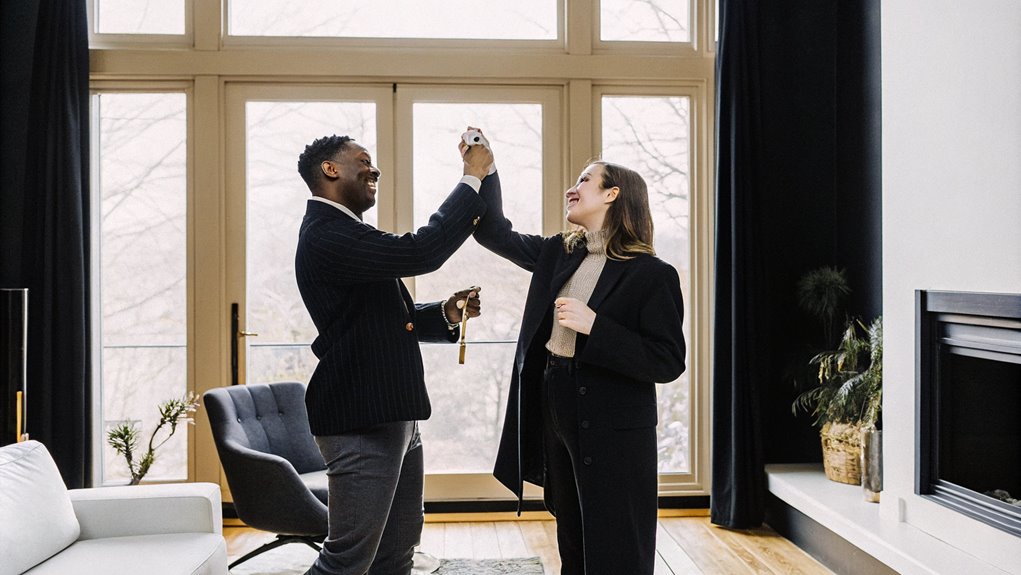
Your home can help you save money over time. Think of it like a piggy bank that grows bigger each month. When you pay your mortgage, you own more of your home. This is different from paying rent, where your money goes to someone else.
As time goes by, homes often become worth more money. Your monthly payment stays the same if you have a fixed loan. This means two good things happen: your home is worth more, and you owe less on it.
The money you build up in your home can help you later in life. You can use it when you need extra cash or save it for when you stop working.
You can also pay less in taxes when you own a home. The government lets you save money on what you pay for your loan and home taxes. That means more money stays in your pocket.
Michigan residents, unlock the door to your new home. Request your home loan quote from Treeside Financial today.
Protection Against Rising Housing Costs
A fixed-rate home loan helps you save money over time. When you lock in your monthly payment, it stays the same year after year. This means you won't have to worry about paying more as time goes by.
Look at how rent goes up:
| Year | Average Rent | Fixed Mortgage |
|---|---|---|
| 2020 | $1,500 | $1,400 |
| 2025 | $1,750 | $1,400 |
| 2030 | $2,100 | $1,400 |
| 2035 | $2,500 | $1,400 |
Your friends who rent will pay more each year. But your main house payment won't change. Only your taxes and home insurance might go up a little bit. This helps you plan better for your future and keeps more money in your pocket.
Tax Benefits of Homeownership

Buying a home can help you save money on taxes. When you pay your mortgage, you can get money back on the interest you pay, up to $750,000 of your loan. You can also get money back on your property taxes, up to $10,000.
If you sell your home, you won't need to pay extra taxes on the money you make from the sale. Single people can keep up to $250,000 tax-free. Married couples can keep up to $500,000 tax-free. But you must live in your home for at least two years first.
You can also save money on other costs. When you first buy your home, you can get money back on fees you paid to get your loan.
If you pay for mortgage insurance, you can get some of that money back too.
Freedom to Customize Your Space
Your home is yours to make just how you want it. When you own a home, you don't need to ask anyone if you can change things. You can make it perfect for you and your family.
You can do so many fun things with your home:
- Take down walls or build new rooms
- Put in things that stay, like shelves or alarm systems
- Get new floors, windows, or kitchen tools
- Make your yard pretty with plants and fun spaces
When you make these changes, you not only get to enjoy them, but they can make your home worth more money too.
Best of all, your home feels just right for you. Your changes will last for years, and you'll feel proud of the special place you've made. Unlike renting, every change you make is yours to keep.
Creating Stable Community Connections
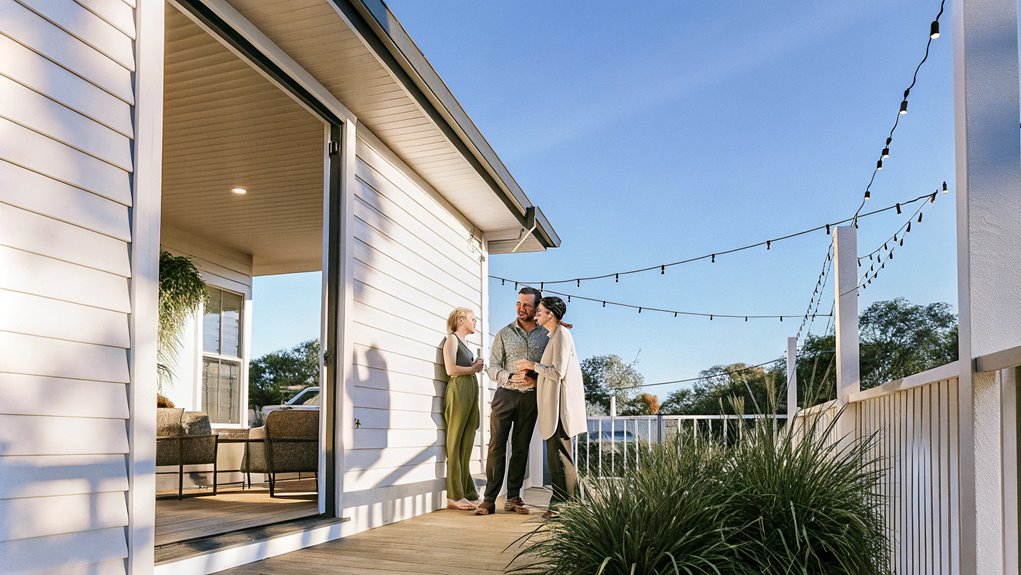
When you make a home your own, you get to be part of three big parts of your neighborhood. You meet nice people who live near you. They care about keeping the streets safe and making schools better, just like you do. You work with them to make the whole area nicer for everyone.
You also get to know the people who run the shops and fix things. You find your favorite coffee shop. You trust the people who help fix your car or home. When you shop at these places, you help your town grow strong.
Last, you get to speak up about what happens in your town. You can go to meetings and tell people what you think. Since you live there, others will listen to your ideas about making the town better. Soon you'll help make good changes happen where you live.
Retirement Planning Through Real Estate
Having a home you own helps you plan for when you work less later in life. Just like saving money in a bank, your home can grow in value over many years. This helps you feel safe about money when you get older.
Your home can help you in these ways:
- One day, you won't need to pay your home loan anymore.
- You can use the money your home is worth if you need it.
- You can rent out your home to others to make money.
- Homes often grow in value more than things cost over time.
When you buy and keep a home, you do more than find a place to live. You build a money base that can help take care of you when you stop working.
Passing Down Generational Assets
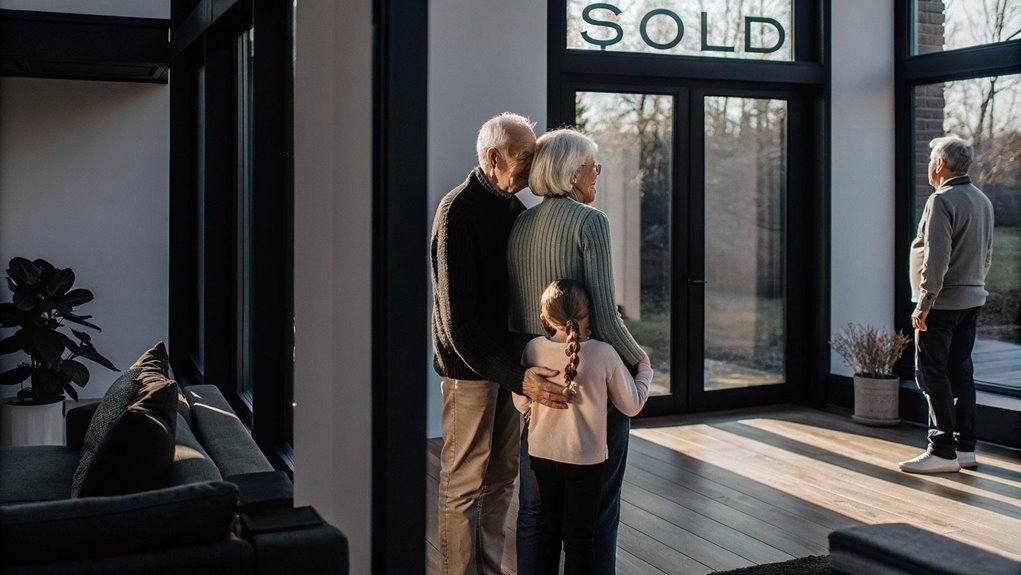
When you buy a home, you help your whole family have a better future.
Your house is like a gift that keeps giving – one that you can pass down to your kids and their kids too.
Think of it as a piggy bank that grows over time.
When you plan ahead, your home can help take care of your family for many years to come.
Building Family Financial Security
Your home is like a piggy bank that grows over time. When you own a home, you help your whole family have more money – not just now, but for many years to come.
When you buy a home, good things happen:
You pay your own house bill, not someone else's rent.
Your home may go up in value faster than prices at the store.
You can use your home to help pay for school or start a business.
Your monthly payment stays the same, so you can plan better.
Think of your home as a safe place for your money. It helps keep your family strong, no matter what happens with money in the world.
Just like planting a tree that grows bigger each year, buying a home helps your family money grow too. This makes sure your kids and their kids can have a better life.
Creating Multi-Generation Wealth Transfer
Your house can help your family grow richer over time. When you take good care of your home and help it gain value, you give your kids and their kids a big head start in life.
You can pass your house down to your family in three ways:
- Leave it to them when you pass away
- Put it in a special trust
- Give it to them while you're still here
Think of your home like a big piggy bank for your whole family. To make sure your house helps your family the most, talk to people who know about planning this kind of gift. They can help you pick the best way to share your home with the next group of kids in your family.
| How to Share | What Your Family Gets |
|---|---|
| Pass it down | Money right away |
| Use a trust | Save on taxes |
| Give now | Start saving early |
Legacy Planning Through Property
Your home can help take care of your family now and in the future.
It's not just a place to live – it's a way to help your kids and their kids have a better life.
You can do many good things with your home:
- Give it to your kids in a way that saves money on taxes
- Put it in a special account that keeps it safe for your whole family
- Use the value of your home to pay for school or help start a business
- Rent it out so your family gets money every month
When you plan well, your home helps your family grow and stay strong for many years.
It's a gift that keeps giving to the people you love most.
Monthly Payment Predictability
Getting a home loan with a fixed rate means your monthly payments stay the same.
Unlike renting, where your costs can go up each year, your main house payment won't change. You'll pay the same amount now as you'll in 5, 10, or even 30 years.
This makes it easier to plan for your future. You can feel safe knowing how much money you need each month for your home.
Yes, things like taxes and home insurance might change a little bit. But you won't face big jumps in cost like renters do.
This helps you keep your money steady and lets you live without worry about sudden cost changes.
Forced Savings Through Mortgage Payments
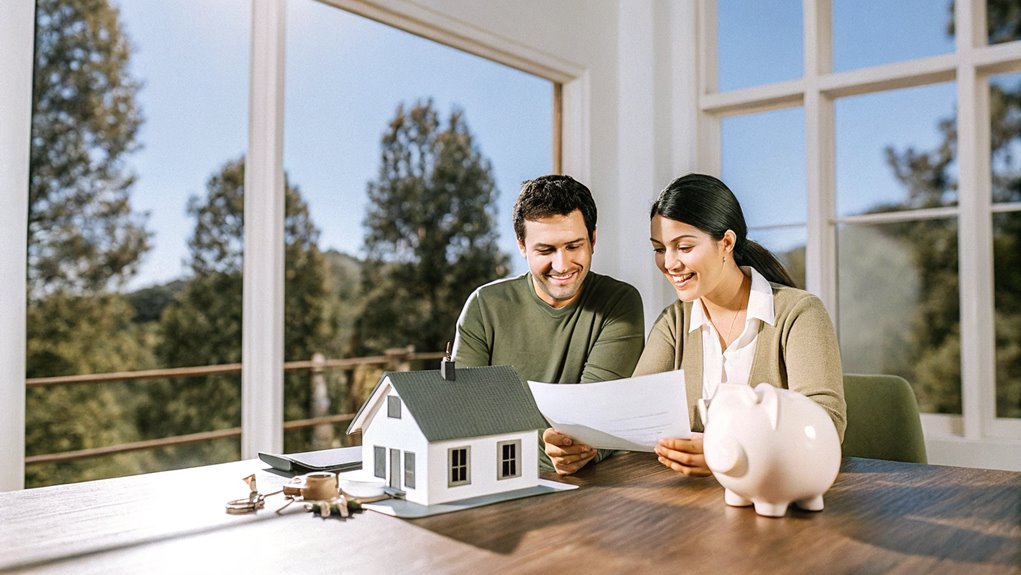
When you pay your mortgage each month, you save money without thinking about it.
Just like putting coins in a piggy bank, your payments help you own more of your home. At first, most of your payment goes to interest.
But over time, more of your money goes toward owning your home. Each payment makes the bank own less of your house and helps you own more of it.
Building Monthly Equity
Owning a home helps you save money in a special way. Each time you pay your mortgage, you own more of your home. Think of it like filling up a piggy bank – every payment makes your share of the house bigger.
Your monthly house payment includes:
- Money that makes the house more yours
- Fees for borrowing the money
- Taxes that help your town
- Money to protect your house if something bad happens
When you rent, your money goes to your landlord. But when you own, your payments help you build up something you can keep.
It's like planting a money tree that grows bigger over time. Your home becomes yours bit by bit, and that's worth a lot.
Principal Vs Interest Breakdown
Your home loan payment has two parts: the money that pays off your house (principal) and the fee for borrowing (interest).
At first, most of your payment goes to interest. Think of it like a piggy bank that starts slow but grows faster over time.
| Year | How Your Payment Splits Up |
|---|---|
| Years 1-5 | 20% House / 80% Fees |
| Years 6-10 | 30% House / 70% Fees |
| Years 11-15 | 45% House / 55% Fees |
| Years 16-20 | 60% House / 40% Fees |
| Years 21-30 | 80% House / 20% Fees |
Each time you make a payment, you own more of your home. Your house becomes more yours, bit by bit. This helps you save money and build something valuable for your future.

